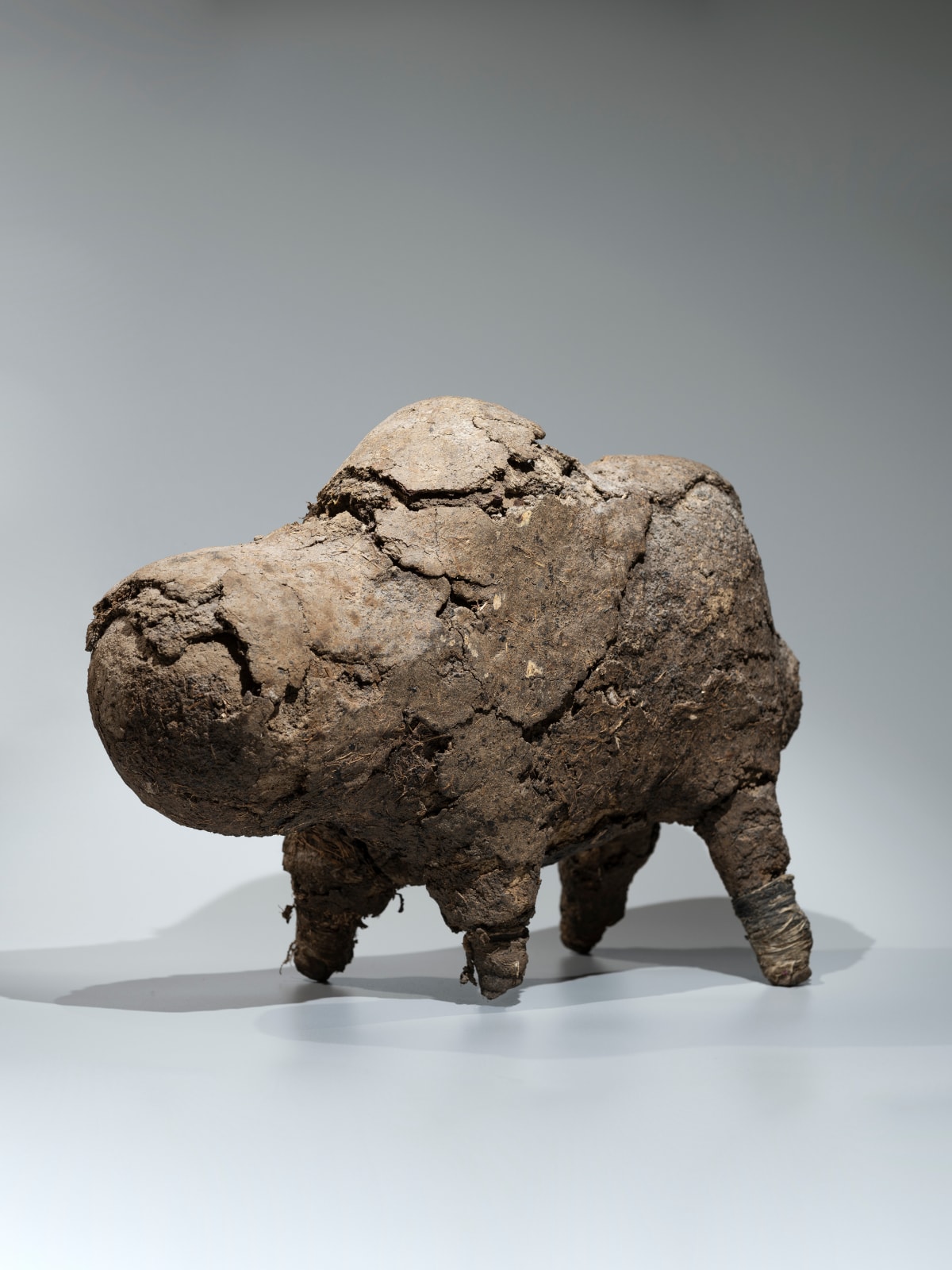Anonymous Bamana artist
Early 20th century
Wood, plant fibers, blood, clay, cloth
13 3/4 x 15 3/4 in
Further images
Among the most sacred objects among Mali’s Bamana people is the boli, which plays an essential role within their spiritual life. Boliw have attracted much attention from Western collectors due to their amorphous forms and unusual materials. Its cracked surface obscures the exact identification of the organic and inorganic materials assembled to create the boli (pl.: boliw) presented here. They are not carved, but rather assembled and molded around a wooden armature core that is wrapped in white cotton cloth, around which clay and sacrificial materials are encrusted. This boli has four short "legs" upon which it sits, as well as a single hump rising from the top. The creature that a boli represents is unidentifiable, but many take on the loose zoomorphic form suggested by this work, while others may be anthropomorphic. Hypothetically, they do resemble a bush cow or hippopotamus. The main function of a boli is to accumulate and control the naturally occurring life force called nyama for the benefit of the community. All the ingredients from which it is composed possess this important spiritual energy. The encrustation may include the blood of chickens or goats, chewed and expectorated kola nuts, alcoholic beverages, honey, metal, animal bones, vegetable matter, and sometimes millet. As the encrustation cracks and hardens throughout the years, it gives the impression that these ingredients are tightly packed within the boli. As the sacrificial materials accumulate over time, each added layer affords the structure greater spiritual power. Boli have been described as both a symbol of the universe and a receptacle of the forces that animate it. It functions as an intermediary that permits communication with the supernatural power whose force it permeates. As repositories of enormous spiritual power or nyama, boliw were viewed with awe and fear. They were exclusively used as altars by the Komo Society, a men’s association of priests, elders, and blacksmiths that forms the central Bamana social institution. The association’s members progressed through induction processes that could span decades. Over time, they attained a deeper and deeper esoteric knowledge of the natural and spiritual world. Sequestered in shrines or in the dwellings of priests, the boli’s amorphous form keeps its sacred secrets hidden from the uninitiated and could only be safely handled by those association members equipped with the most exclusive and secretive expertise and knowledge. Their form is intended to be visually inaccessible to all but the initiated, who alone knew the ritual procedures for harnessing their awesome powers. Even far removed from its original context, this disquieting and powerful object has kept its secrets.
Provenance
Collected during a series of journeys to Dogon country, late 1950s by Marie-Ange Ciolkowska
Collection Marie-Ange Ciolkowska (1898-1992), Paris, France
Kunsthandel M.L.J. Lemaire, Amsterdam, The Netherlands
Private collection, The Netherlands
Private Collection, Brussels, Belgium
let's keep in touch
Join our community & never miss out on a DUENDE moment from now on
* denotes required fields
We will process the personal data you have supplied to communicate with you in accordance with our Privacy Policy. You can unsubscribe or change your preferences at any time by clicking the link in our emails.









